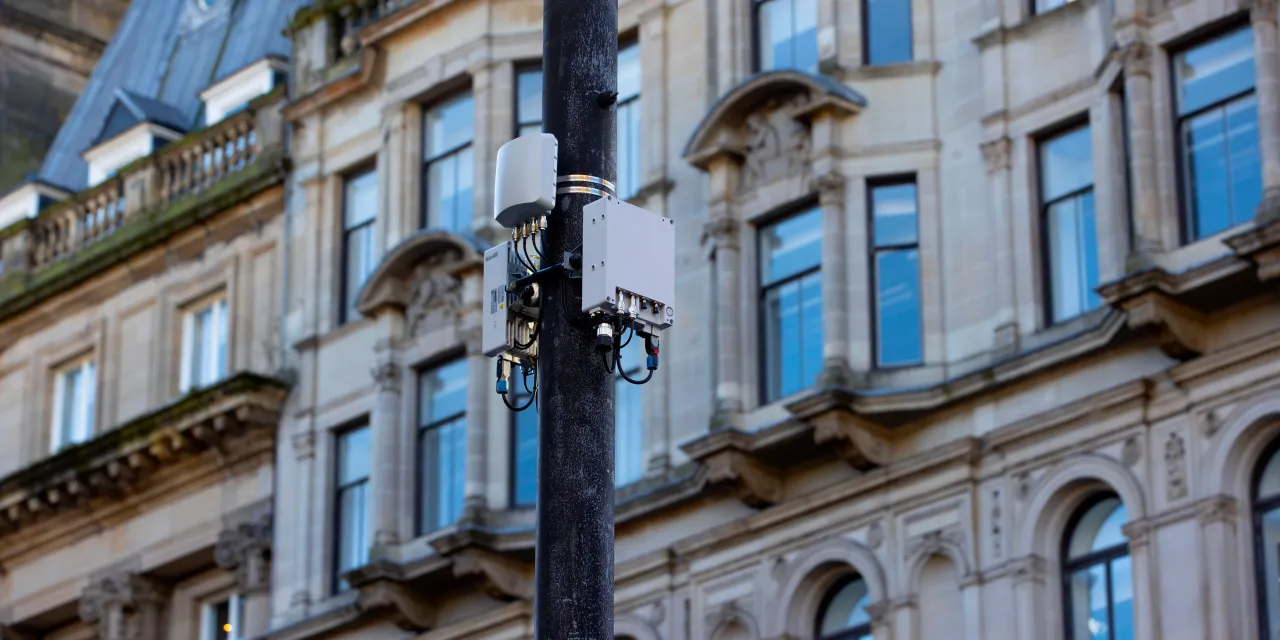Three UK is embarking on a mission to address urban network congestion in Glasgow by deploying more than 50 small cells throughout the city. This initiative comes as a response to the significant surge in consumer data consumption since the launch of its 5G services in 2019.
The project, expected to span 15 months, will involve the deployment of 51 small cells strategically positioned across Glasgow. Iain Milligan, Chief Networks Officer at Three, emphasized the pressing need for additional capacity in urban centers due to the substantial increase in data consumption levels.
Funding for the project is supported by the UK Government’s initiative to demonstrate Open RAN technologies in high-demand density environments, with an investment of up to £88 million in research and development. A consortium comprising Three UK, Boldyn Networks, AWTG, University of Surrey, PI Works, Scotland 5G Centre, University of Glasgow, and Accenture will receive a £9.1 million grant for the Small Cells ORAN in Dense Areas (SCONDA) project. This collaboration aims to address mobile reception challenges in Glasgow’s high-demand areas, in partnership with Glasgow City Council.
“Without a fast, stable and secure connection to the internet, our citizens cannot be part of the limitless opportunities that are offered to them in the modern world,” said Glasgow City Councillor Paul Leinster.
The first phase of the project will witness the deployment of 20 small cells, with the unveiling of the first cell taking place in the city center. Small cells offer a quick and cost-effective solution to address connectivity issues, with deployment costs significantly lower compared to traditional macro sites.
Mavenir is providing equipment and software for the project, while Boldyn Networks is responsible for site acquisition and deployment. P.I Works will contribute automation solutions, and Accenture will conduct performance measurements.
Three anticipates a 61% increase in coverage and a 35% average increase in speed in areas where small cells are deployed as part of the trial. If successful, there are plans to expand this infrastructure to other cities across the country. Glasgow City Council views this initiative as a crucial step towards bridging the digital divide and ensuring equitable access to opportunities in the modern world.
Beyond improving urban connectivity, the small cell trial also marks Three UK’s significant move towards Open RAN architecture. The UK government aims to have 35% of the country’s network traffic operating over open RAN by 2030, with Three UK’s trial representing its first substantial venture into this technology. Open RAN proponents argue that its interoperable specifications offer greater performance, customization, and reduced reliance on major vendors, ushering in a new era of connectivity innovation.

Moreover, small cells offer a rapid deployment process compared to their macro counterparts. While a conventional mast may take up to a year to deploy, a small cell can be installed in just a matter of days, ensuring swift implementation of improved connectivity solutions. An additional benefit is that it circumvents the need for planning permission, requiring only council agreement.
For emerging countries, especially in Africa, this innovative solution effectively addresses the persistent industry challenge of significant digital gaps with more cost-effective alternatives. By adopting existing government infrastructure such as CCTV poles, bus shelters, and lamp posts, the costs of maintenance is shared and uptime of infrastructure is assured. This also minimizes tower rents and reduces sabotage risks to telecommunication companies, and fosters healthy competition, encourages new market entry, and ultimately enhances broadband penetration and digital inclusion.





